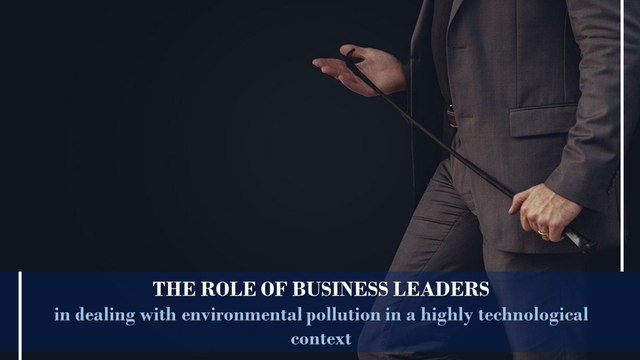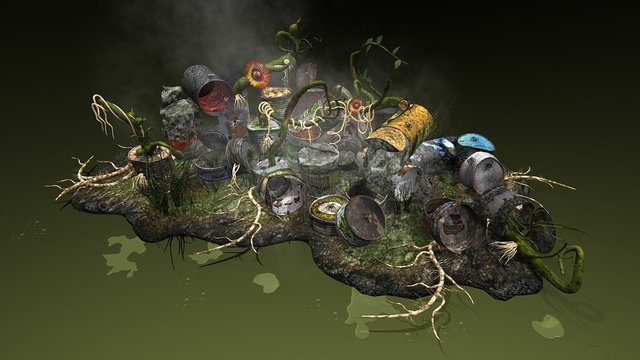The role of business leaders in dealing with environmental pollution in a highly technological context

Greetings dear friends of @Project.HOPE, on this occasion I wanted to pause in my thematic line on psychopharmacology, and share environmental information of constructive connotation that is useful for business leaders in a highly technological context, specifically on how they can support companies, so that they do not continue to negatively impact the environment, in other words, that strategies of a technological nature from their management positions can promote, so that companies are green, or otherwise adopt certain methods that tend to reduce the outright environmental degradation.

Fig. 2 Business activities are largely responsible for the serious damage to the environment. Image of public domain, Author: Bommel, 2017
In advance, we know that the great challenges agreed in several conventions led by the United Nations on Climate Change, are only the macro agreements that have been set to reduce emissions of greenhouse gases, however, there are practical challenges where the lines of business management, can run in their workplaces in the quest to raise awareness among their workers, by providing tools on how to address the multiple problems of environmental pollution.

Fig. 3 Business leaders play a leading role in running environmentally friendly companies. Image of public domain, Author: Free-P, 2016
The context of the globalized world, has been dominated in the last two decades by the emergence of new technologies, which have provided tools to facilitate the implementation of the infinite business activities, however, not in all cases the technology has spread to the business level, because there is a long list of conventional companies, whose methods and obsolete approaches do not favor at all to the reduction of environmental degradation.

Fig. 4 Business leaders play a leading role in running environmentally friendly companies. Image of public domain, Author: Geralt, 2014
In this sense, the purpose of this manuscript is precisely to share with leaders who are at the forefront of companies with conventional approaches, some technological tools that they can implement to help their companies become more ecological. Before listing these technological proposals, aimed at helping business leaders to take ecological actions, I would like to begin by defining Corporate environmental responsibility, which is nothing more than the commitment to environmental protection that companies must assume at the management level, in order to reduce the deterioration not only of natural ecosystems, but also of the working environment, where operational, productive and commercial work is usually carried out.
It is widely known, the negative impact generated in natural ecosystems as a result of business activities, mainly those dedicated to the industrial sector, an aspect that has triggered a series of regulations and standards of global application, among which the main focus is to create production mechanisms that protect or repair environmental damage generated by business activity, hence the constant search for technologies that help companies to be more environmentally friendly. In this sense, some of the technologies to combat climate change, which may well drive business leaders, we can mention some of easy applicability, among these:

Fig. 5 There are cutting-edge technological tools that companies can adopt to reduce environmental degradation. Image of public domain, Author: Daniel P, 2015
1. Rainwater tanks that go directly to the plumbing
2. Greywater recycling technology
3. Solar and wind technologies
4. LED and CFL lighting
5. Biodegradable Plastic
6. Non-electric or low-consumption equipment
Finally, it is important to note that if business leaders are able to promote the implementation of these technologies, companies could minimize the impact they produce to natural ecosystems and their own workplaces, contributing harmoniously to maintain environmental balance and improve the quality of life of their workers.
BIBLIOGRAPHICAL REFERENCES CONSULTED:
[1] Long T. Sustainable Business Strategy. University of Groningen/Campus Fryslân, Leeuwarden, The Netherlands. 2020. Article: Online access
[2] Tang S., and Demeritt D. Business Strategy & the Environment. 2017; Article: Online access
[3] Bergquist A. Business and Sustainability: New Business History Perspectives. 2017 Article: Online access
[4] Dias G., and Bulgacov S. Environmental Management, Strategic Practices and Praxis: A Study in Santa Catarina Industrial Companies. BAR. 2015; 2; 3; 4: 288-308. Article: Online access